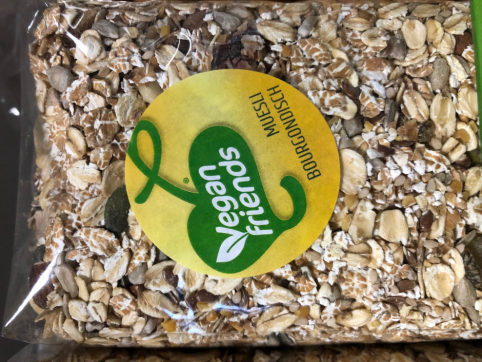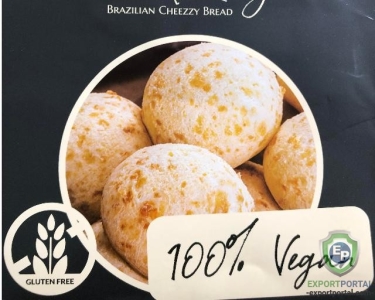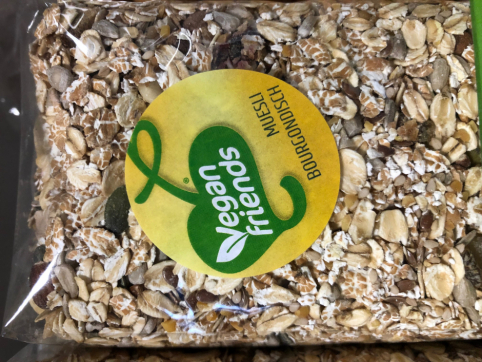Couldn't find the product you want?
Fill out this form to request the product.
Export from Netherlands
The Netherlands, officially Kingdom of the Netherlands, is a country in Western Europe with three island territories in the Caribbean. Internationally, the name 'Holland' is often used to indicate the Netherlands.
The European part of the Netherlands borders Germany, Belgium, and the North Sea. The largest and most important cities in the Netherlands are Amsterdam, The Hague and Rotterdam. Amsterdam is the country's capital, while The Hague holds the Dutch seat of government and parliament. The port of Rotterdam is the largest port in Europe.
The Netherlands has the 17th-largest economy in the world which is a market-based mixed economy.
The Netherlands is the world's second largest exporter of food and agricultural products, after the United States. This comes thanks to the fertility of the soil and the mild climate. Almost 80% of exports are to European nations. The Netherlands is one of the world's 10 leading exporting countries. The largest industrial sector is based on foodstuffs. Other major industries include chemicals, metallurgy, machinery, electrical goods, and tourism.
The Dutch agricultural sector has a strong focus on international exports. It accounts for 21 percent of the Dutch total export value. The Netherlands has, at some time in recent history, supplied one quarter of all of the world's exports of tomatoes, and trade of one-third of the world's exports of chilis, tomatoes and cucumbers goes through the country. The country's exports of apples accounts to be one-fifteenth of the world's exports.
A significant part of Dutch agricultural exports consists of fresh-cut plants and trees. The Netherlands exports two-thirds of the world's flowers and flower bulbs.
The Netherlands’ main export partners are Germany, Belgium, France, the UK, Italy.
The Netherlands' main exports are:
- Oil
- Machines, engines, pumps
- Electronic equipment
- Pharmaceuticals
- Plastics
- Medical, technical equipment
- Organic chemicals
- Vehicles
- Iron and steel
- Live trees and plants
Import to Netherlands
The Netherlands is a founding member of the EU, Eurozone, G-10, NATO, OECD and WTO, and a part of the trilateral Benelux economic union. The Netherlands is also a part of the Schengen Area.
The Netherlands trade is the main base for the economy. Netherlands’ location means that the nation is closest to the European regions that have the maximum population density. In fact, almost 160 million people stay within a 300 mile radius of the Netherlands, giving the country many regions to trade with. Nearly 70% of Netherlands’ imports come from European nations. The Netherlands trades with a positive trade balance. As the nation enjoys a massive contribution through trade, it is a huge supporter of open trade, along with the US.
The Netherlands has a developed economy and has been playing a special role in the European economy for many centuries.
With huge natural resources, the Netherlands requires machines to process them and therefore it imports of machinery also dominates in the total imports.
The Netherlands imports mostly fuel (29 percent of total imports), machinery, food and live animals, medical products and electronics.
The Netherlands’ main import partners are Germany, China, Belgium, The US, The UK, Russia, France.
Netherlands main imports are:
- Oil
- Machines, engines, pumps
- Electronic equipment
- Cars
- Medical, technical equipment
- Pharmaceuticals
- Organic chemicals
- Plastics
- Iron and steel
- Aluminum
Buy Bulk Food at Export Portal's Food and Agricultural Produce Shop
From cocoa, chocolate, and snack foods to honey, wine, and organic foods, there are thousands of delicious products waiting for you at Export Portal's Food and Agricultural Produce Section. We are one of the biggest online stores out there, and we carry only the freshest, high-quality food products. Our wide selection of products from reliable wholesalers, exporters, producers, and suppliers are bound to keep you healthy and full!
Discover New Foods With Us
Get ready to embark on an exciting journey with Export Portal! On our site, you can discover and explore new foods and flavors from different countries like China, America, France, Spain, Italy, India, Egypt, and many more. You can find various ingredients to create your favorite international dishes on our site. You can even buy or sell bulk canned goods, vegetables, fruits, meat products, nuts, and sugar!
You can also experience a variety of Italian food and beverages, such as pasta, dried herbs, famous Italian cheeses, extra virgin olive oils, and coffee. To get a taste of the East, try our vast array of spices that includes ginger, pepper, cinnamon, curry powder, cumin, and coriander. Our range of Chinese noodles, wasabi, or tofu can also help you recreate some of your favorite Chinese meals! But if none of these sound appealing to you, you can also search our selection of black beans, whole wheat flour, coconut flour, stevia, chia seeds, green or white tea, healthy olive, and coconut oils for a healthy alternative.
Online Shopping Made Much Easier
We try our best to ensure your online shopping experience with our Food and Agricultural Online Store is 100% satisfactory. Whatever you are looking for, we will make sure you can find it on our site. Discover various international foods on Export Portal today!
Customs requirements of Netherlands
Dutch Customs Contacts
Website: http://www.douane.nl/
Address: Postbus 3070, 6401 DN HEERLEN, The Netherlands
Telephone: +31455743031
The Netherlands, a country in northwestern Europe, is known for its flat landscape, canals, tulip fields, windmills and cycling routes. The Netherlands, the sixth-largest economy in the European Union, plays an important role as a European transportation hub, with a persistently high trade surplus, stable industrial relations, and moderate unemployment. Industry focuses on food processing, chemicals, petroleum refining, and electrical machinery. A highly mechanized agricultural sector employs only 2% of the labor force but provides large surpluses for food-processing and underpins the country’s status as the world’s second largest agricultural exporter. The Netherlands is part of the Eurozone, and as such, its monetary policy is controlled by the European Central Bank.
Customs Tariffs
The Netherlands is part of the trade system of the European Union (EU) and importing and exporting are covered by EC Regulations.
A Common External Tariff (CET) is applicable to other countries.
The European Community has created the Binding Tariff Information (BTI) system as a tool to obtain the correct tariff classification for goods for import or export.
Non-tariff barriers
Imports of a number of items are restricted and may also depend on the country of origin of the product.
Imports of food and agricultural products from outside the EU covered by the Common Agricultural Policy (CAP goods) are often subject to customs duty and quotas and may require a license or certificate.
The Netherlands Food and Consumer Product Safety Authority provides information on importing food from outside the EU.
Trade with certain countries is forbidden or restricted in accordance with UN, EU or OSCE sanctions.
Certificates
Certification, labelling and packaging must meet EU requirements.
CE Mark
The CE mark is a mandatory conformity marking for certain products sold within the European Economic Area (EEA).
Labelling
All labelling and information directives of the European Council must be met, as well as local and national regulations.
Food information and labelling legislation must comply with EU legislation.
For organic produce, EU legislation requires that imported organic food from third countries be produced to the same standards as that from or EU.
Special certificates
There are controls on imports into The Netherlands on a number of products. Based on a risk analysis, containers are selected for inspection. Customs can extract containers from the logistics chain and inspect them.
Safety
The safety concept can be divided into social safety and product safety. Social safety concerns matters such as:
- the entry of goods that may disrupt social life in connection with terrorism
- the protection of public health and the environment
Product safety concerns, for example:
- goods of inferior quality
- counterfeit goods
Documents
Pro-forma invoice
This may occasionally be requested by the importer. A minimum of two copies is required.
Commercial invoice
No prescribed form and a minimum of two copies are required. The invoice must include:
- the name and address of both buyer and seller
- method of packing
- marks and numbers
- number of containers
- description of the merchandise (including HS description)
- net and gross weight
- free on board (FOB) value (Incoterms 1990)
- freight
- insurance and other charges.
Bill of lading
No special requirements. To Order bills are acceptable.
Packing list
Not obligatory but simplifies clearance if a variety of goods are packed in different cases.
Certificate of insurance
Normal commercial practices apply.
Insurance
Normal commercial practices apply.
Taxes on imported goods
When importing goods into the Netherlands from outside the European Union (EU), you will usually have to pay import duties. You will also have to pay VAT and in some cases excise duty, consumption tax or other levies.
Import duties
Import duties are levied on imported goods. The Dutch Customs authorities levy and collect the duty and transfer the sums collected to the EU. Member states are entitled to retain a portion of the import duties that they collect to cover collection costs.
Customs authorities do not levy import duties on products traded between EU member states. However, VAT will be payable. Some products are also subject to excise duty and consumption tax.
All EU member states apply the same common customs tariff (CCT).
Protection against low prices
Levying import duties on imported goods is a way of protecting countries against cheaper products from third countries. Companies in some countries can produce their products more cheaply due to lower wages, costs and prices. Adding import duties to these products makes them more expensive, thereby narrowing the price difference and enabling countries to compete more effectively with producers in third countries.
VAT and reverse charging
In addition to import duties, you normally have to pay VAT. The VAT rate is the same as that which applies to supplies of goods and services in the Netherlands. In some cases VAT can be declared by the customer as if it had supplied the goods/services, under the reverse charging mechanism.
Excise duty and consumption tax
Excise duty is payable on excise goods, which include:
- alcoholic beverages (such as beer and wine);
- tobacco products (such as cigarettes and cigars);
- mineral oils (such as diesel or petrol).
Tobacco products require a valid Dutch excise stamp. Consumption tax is also payable on imports of non-alcoholic beverages.
Other levies
In some cases other levies are payable on imported goods, for instance agricultural levies on agricultural products or anti-dumping duty on industrial products. These levies are intended to prevent products coming onto the European market at exceptionally low prices.
Customs: Import controls
Companies and consumers must satisfy a number of regulations before they may import goods. Import taxes may have to be paid, for example, and goods that are not safe may be banned. Customs checks goods that are brought into the Netherlands by companies and private individuals.
Importation of goods
All goods that are imported from a third country first acquire the status of 'goods in temporary storage'. The importer must declare how they will be treated or used and can then use one of the customs procedures.
A well-known procedure is 'release for free circulation'. The goods then acquire the status of 'Community goods' and may circulate freely within the EU single market. The importer pays customs duties to acquire this status. Importers usually rely on the expertise and credit facilities of customs agents to deal with the formalities of importing goods.
Goods placed under customs supervision
The ultimate treatment or use is not always known when goods are imported. If the goods are immediately re-exported, they are not released into free circulation in the EU and the importer need not pay customs duties. Customs-approved treatments or uses have therefore been introduced in which the goods are placed under customs supervision and duties are not payable.
This procedure is used if, for example, goods must first pass health, safety and environmental checks before they can be released into free circulation. An importer needs a licence to place goods under customs supervision.
Other examples of customs-approved treatment or use are external transit, customs warehousing, temporary importation and inward processing.
Customs procedures
Customs does its best to admit goods quickly and simply but still carry out appropriate checks. To this end, it uses the opportunities provided by the European customs procedures. Where possible, Customs seeks simpler solutions. Examples of this approach include:
Use of simplified procedures
Simplified procedures are often available to help businesses complete customs formalities. If a company keeps approved accounts, for example, Customs is willing to accept them for its checks. This prevents the duplication of work. If necessary, checks of the accounts are combined with a physical inspection of the goods.
Combinations of simplified procedures
Businesses that keep their accounts electronically can use a combination of simplified procedures. These include: accounts-based checks of goods in storage in combination with simplified procedures to transport the goods to and from the warehouse.
Health, safety, economic and environmental checks
Customs supervises the import (Import Control System), export (Export Control System) and transit (NCTS) of goods. It determines whether the goods comply with health, safety and environmental standards. With regard to health and the environment, it checks, amongst other things, the quality of medicines and tobacco products and inspects the transportation of live animals. With regard to economic requirements, it checks licenses for firearms and ammunition and for counterfeit products.
In order to be allowed to export Community goods, the exporter must file an 'export declaration'. There are certain requirements that you must meet for tax purposes. You must also observe a number of rules concerning safety, health, economy and environment.
Sources:
http://www.belastingdienst.nl/wps/wcm/connect/bldcontenten/belastingdienst/customs/ http://www.hollandtrade.com/
http://www.government.nl/issues/export-import-and-costums/taxes-on-imported-goods
http://www.government.nl/issues/export-import-and-costums/customs-import-controls
http://ec.europa.eu/ecip/national_customs_websites/national_nl_en.htm


